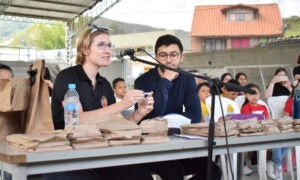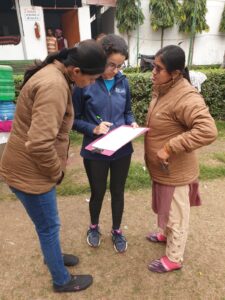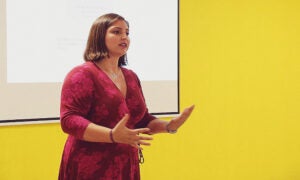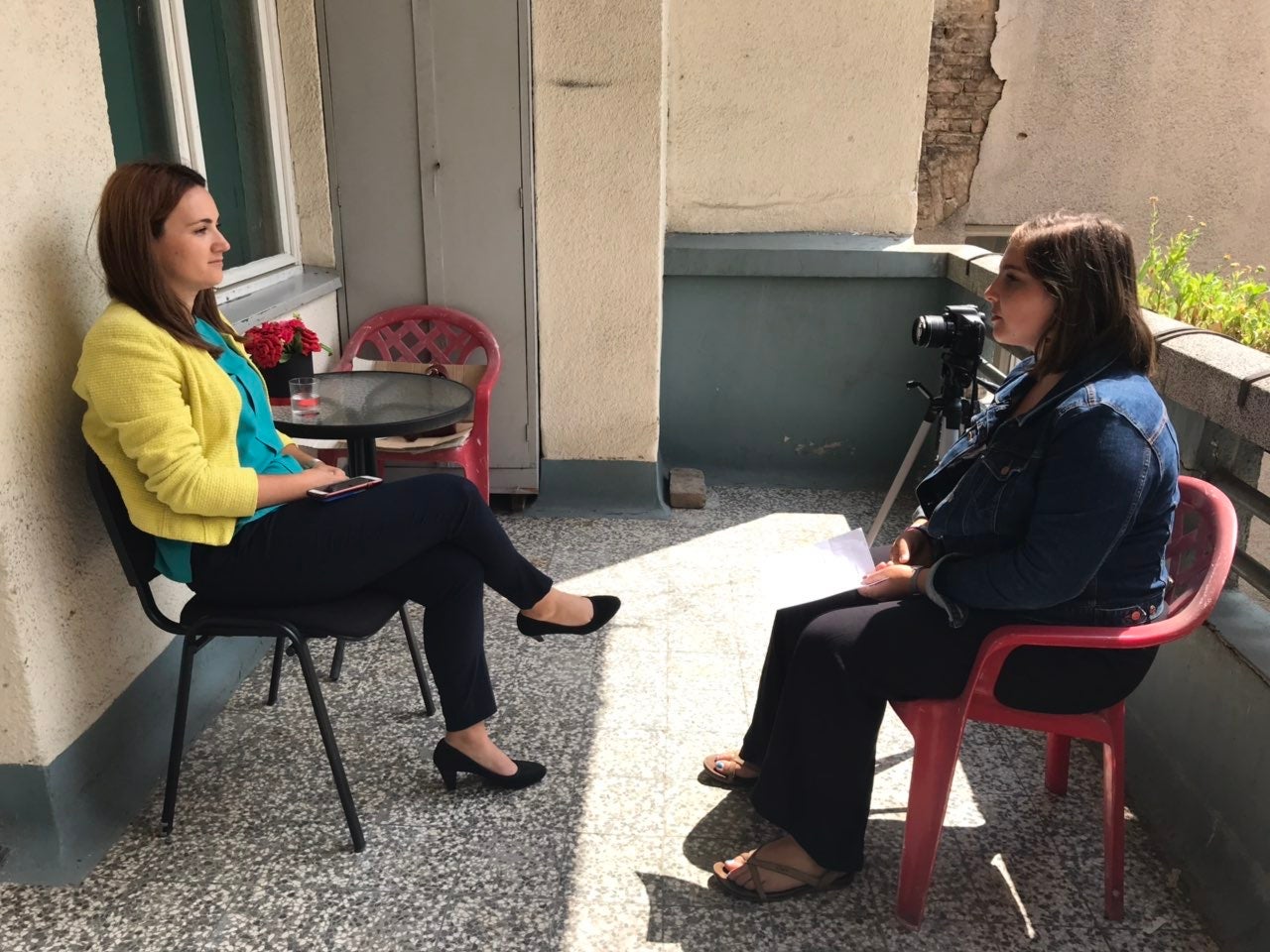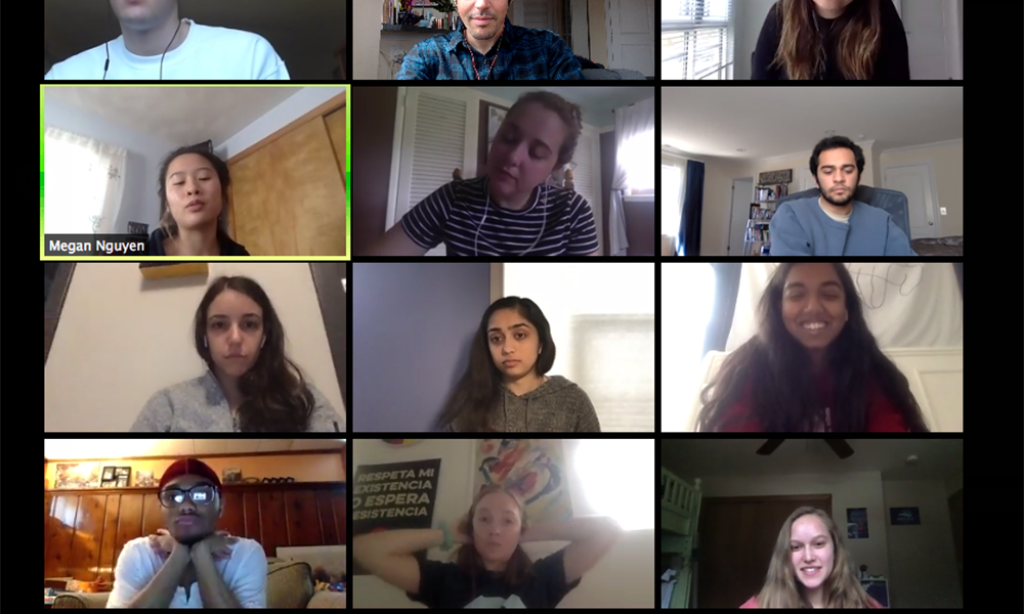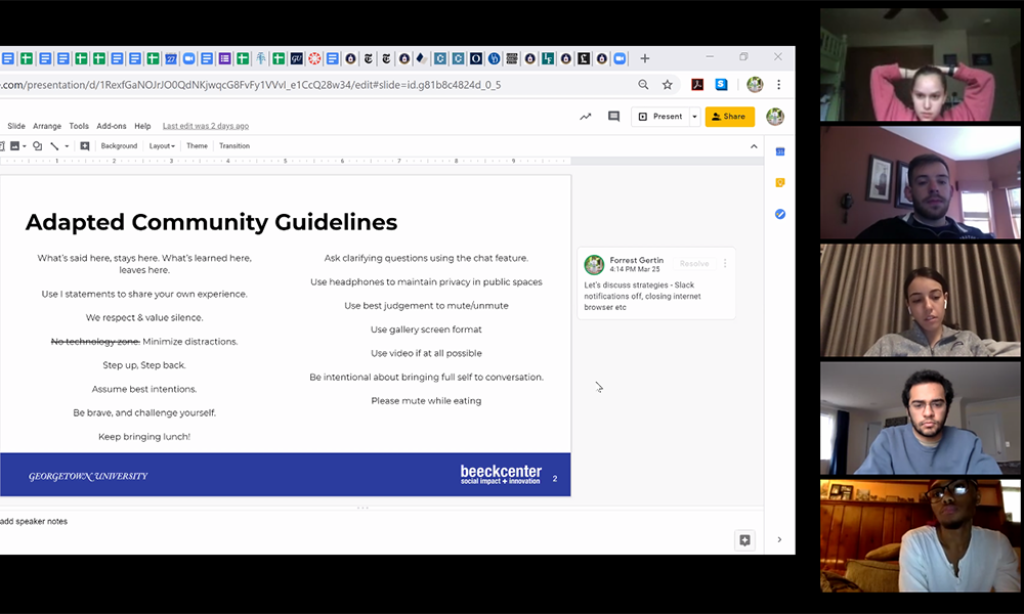Crossing the Bridge From High School to College
October 16, 2020 – By Matt Fortier
Traditional models in higher education, centered on classroom learning, lectures, and textbooks, have fallen short of preparing the next generation of leaders. Fortunately, innovators from within and outside the institution of higher education have developed compelling models, centered on applied and experience-based education, to prepare students to have a positive impact in society. Through “gap years,” experience-based semesters, and problem-based courses, students are developing self-awareness, learning how to work with communities, and gaining a nuanced understanding of how to tackle the complex challenges of our time.
Experiential learning is not new – educators have long-recognized the value of providing students with opportunities to apply theoretical knowledge to real-world problems. These immersive experiences enable students to get their hands dirty while pushing them out of their comfort zone, where they learn both from “failure” and “success”. As COVID-19 has forced students out of the classroom, we can seize the moment to take a closer look at these experiential learning models and how they help form the types of leaders our world needs.
This is the conversation we hosted in the third installment of our Ideas That Transform (ITT) Series, as we examined the question What if Colleges Designed Impact-Oriented Bridge Years. We dug into the transformative potential of bridge years and other experiential learning programs, while seeking to understand both the challenges and opportunities of integrating this model within the institution of higher education.
Watch the entire conversation now.
Going Beyond the Comfort Zone
After completing high school, Jamie Cohen made the difficult decision to go against the grain, overcoming pressure from peers, parents, and society by deferring her acceptance to George Washington University and enrolling in Global Citizen Year’s bridge year program. She worked in Ecuador for a year, learning Spanish and Quechua from her host family, while apprenticing at a fair-trade jewelry company focused on elevating indigineous women in the community through access to jobs and healthcare.
Living in a host community and not speaking English for weeks on end, she developed “grit, adaptability, and cross-cultural communication skills,” giving her a better understanding of self and of how to best take advantage of the education offered to her at GW. She had transformed into an agent of her own journey, equipped with self-awareness and purpose, ready to navigate her undergraduate experience with a level of intentionality unmatched by her peers.
In 2016, Jamie was among the 1-2% of students to break from the high school to college pipeline, avoiding the fate of excellent sheep by undertaking a bridge year program. Due to the impacts of COVID-19, schools like Harvard are seeing a 20% deferral rate, and nationally, first-year enrollment is down 16.1%.we’re seeing a huge increase in that number. This is a tremendous opportunity – what students do after they defer will have a formative impact on their personal and professional journey. As educators, we need to go beyond the classroom to meet students where they are and to ensure that the time “off” is not time lost rather, a positive and pivotal moment in their education.
In founding Global Citizen Year, Abby Falik has worked for more than a decade to intentionally design a year-long experiential learning program between high school and college to do just that. She helped rebrand the term “gap year” – a metaphor implying you’re falling into a hole you may never escape into a “bridge year” that offers a safe passage to your destination. By designing a year-long experience between high school and college that is more than simply backpacking across Europe, Global Citizen Year created a deliberate transition that draws on the theory of the aptly named William Bridges. He notes the difference between the type of change that happens to you, and the type of change that puts the student in the driver’s seat, empowering them as agents of their own journey.
Abby’s goal is to encourage young people in their curiosity and to help them build the courage to follow their convictions. She wants them to figure out who they are when they’re out of their comfort zones, to discover what it means to be human in the world, and how they can use their higher education to further their interests and goals. Her mission has increasingly resonated with educators who recognize the value of these experiences, though our conversation also highlighted some of the key challenges.
Challenges to Colleges & Universities
When Jamie started at GW after her bridge year experience, she encountered a disconnect. She did not receive credit towards her graduation requirements, making her feel that her experience was not valued by GW. She also found it difficult to connect with her fellow first-years who came straight from high school. During our conversation, she suggested that in the future, GW could formally partner with or directly offer bridge year programs, provide programs to integrate students as they matriculate, and offer credit for the experience so that students could better afford these opportunities, highlighting the important topic of equity and access.
While there is widespread agreement among educators regarding the transformative impact of bridge years and other forms of experiential learning, changing established models within the institution of higher education is very difficult. Randy Bass, Vice President for Georgetown University’s Strategic Education Initiatives, spoke to the root challenge of implementing these innovations in institutions of higher education. He noted how “Universities like Georgetown are very invested in a very particular model. You’re either here, or you’re not. You’re either in traditional classes, or you’re not. You’re either immersed in this community, or you’re not. You’re either around people who will become your mentors, or you’re somewhere else.” The “COVID disruption” however, has changed that.
Georgetown’s Randy Bass discusses the new situation universities find themselves in.
“We have jumped the binary.”
“That you can be here and be elsewhere is newly imaginable,” Bass continued. In the wake of the pandemic, students login to their class from anywhere in the world, or take a break from class all-together, choosing either a formal bridge year program or an independently driven experience. In fact, he noted that innovating our approach to education is no longer a luxury for some to consider but rather, a matter of survival for many universities, as enrollment numbers wane and students around the world question the value proposition and price tag of a traditional university education.
Randy summarized the idea aptly, asking
“How do we meet the moment – this moment that is characterized by a sense of trauma for large numbers of people in our world, deep, polarization – a growing gulf of people trying to talk to each other but who don’t see eye to eye. There is a looming question: what is the role of higher education in helping to develop the next generation to be part of the world that increasingly feels disintegrative rather than integrative? How can higher education help students figure out how to be human in the world?”
Bass talks about the goal of higher education to do more than just educate.
While Georgetown does not have its own bridge year program or partnership, it recently launched the Capitol Applied Learning Lab (CALL), which provides a semester-based off-campus opportunity in DC, enabling students to center their semester on an internship, rather than their classes, and then wrapping the coursework around that experience. He referenced other burgeoning programs, from summer global immersions, social justice immersions, and alternative break programs, which enable students to “step outside the bubble of the Hilltop and meet the world.” He also shared pragmatic opportunities for the integration of applied learning to more traditional sources, such as “field work, community-based work, and client-based work, all of which can be incorporated into the formal curriculum.”
“If you’re a parent, don’t let your kids schooling interfere with their education,” advised Abby, quoting Mark Twain as she noted that high school is increasingly a high stakes game to get into college, with diminishing room for risk-taking, failure, and authentic experimentation.
Abby Falik from Global Citizen Year speaks directly to students and parents.
She spoke to the institutional partnerships that Global Citizen Year has successfully made, where universities like Tufts directly offer admitted students the opportunity to defer and undertake a bridge year program, with varying forms of tuition and credit integration to make the opportunity accessible to students of all financial means. These partnerships also enable students like Jamie to “find their people,” through programming that integrates students as they arrive on campus.
Seizing the Opportunity Ahead
To be clear, these innovations were underway and necessary well before the impacts of COVID-19. But amidst an incredibly difficult year that continues to test us, there are a few silver linings. In the “before times,” mainstream institutions of higher education shied away from innovations for the very reasons Randy underscored – they were heavily invested in a particular model and it was working, at least well enough. The model is no longer working, and COVID-19 has made that abundantly clear.
Moreover, the pandemic has made clear that the landscape of education is shifting and that forward thinking organizations like Global Citizen Year, pioneered by inspired thought leaders like Abby, will deservedly gain an increasing foothold in the higher education space to form students like Jamie, equipping them with the mindsets and skills necessary to tackle the big hairy problems of our time. At the Beeck Center, we’ll continue to work both inside and outside the institution of higher education to catalyze these critical innovations and improvements while developing new models that anticipate and address the needs of the future.
Interested in how you can drive impact in your communities, check out our Project Builder.
Interested in how you can work directly on Beeck Center projects while developing your skills as a future leader for social impact leadership? Check out our Student Analyst Program.
Stay connected with the Beeck Center for future opportunities through our Social Impact Opportunities Newsletter.
Interested in more events like this? Stay up-to-date on the latest from our Ideas That Transform Series.
